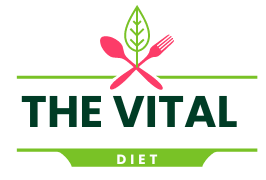
In the realm of dieting and nutrition, the Blood Type Diet has stirred interest and raised eyebrows. This diet theory, proposed by naturopathic physician Peter D’Adamo, suggests that our blood type should dictate what we eat and how we exercise for optimal health. This article will delve into the details of the Blood Type Diet, its premise, benefits, drawbacks, and its potential effectiveness.
Unpacking the Blood Type Diet
The Blood Type Diet is predicated on the idea that our blood type can influence our dietary needs and exercise regimens. D’Adamo posited that consuming foods with lectins (a type of protein) that are incompatible with one’s blood type can lead to health issues such as heart disease, kidney disease, and even cancer. However, the scientific community has yet to fully endorse these claims.
Expert Opinions
Most nutrition professionals advise against basing diet choices solely on one’s blood type, as it restricts numerous healthful foods and lacks a solid scientific foundation. Kelly Plowe, MS, RD noted, “Basing a diet on your blood type is not evidence-based and restricts many healthy foods. Nutrition experts do not support or recommend this diet for achieving nutrition or health goals.”
What Can You Eat on the Blood Type Diet?
The Blood Type Diet outlines different food and exercise recommendations for each blood type. Regardless of blood type, however, the diet promotes consumption of whole foods and minimizes intake of processed foods.
Type A Diet
D’Adamo labeled those with blood type A as “cultivators”, suggesting they fare better on an organic, vegetarian diet. A calming, centering exercise regimen including yoga and tai chi is advised.
Type B Diet
Those with type B blood, termed “nomads” by D’Adamo, are believed to have a robust immune system and a tolerant digestive system. A moderate physical exercise regime, coupled with a well-rounded diet, is recommended for this group.
Type AB Diet
The AB blood type group, referred to as “enigmas”, are suggested to incorporate a combination of the exercises and diets for types A and B, with a limitation on meat intake.
Type O Diet
For type O blood individuals, labeled “hunters”, D’Adamo recommends a diet high in animal proteins and low in dairy products and grains, accompanied by intense physical exercise.
Supplements
D’Adamo also suggests specific supplements for each blood type, including specially formulated multivitamins, multimineral, lectin blockers, and probiotic/prebiotic blends.
What You Cannot Eat
The Blood Type Diet does not completely forbid any foods. Nevertheless, not all foods are deemed beneficial for different blood types, and processed foods are generally discouraged.
How to Follow the Blood Type Diet & Tips
No specific meal timings or fasting periods are required on the Blood Type Diet. However, the plan discourages the consumption of water or other beverages with meals as it could dilute natural digestive enzymes and make digestion more difficult.
Pros of the Blood Type Diet
The Blood Type Diet, like all diet trends, carries both positives and negatives. Its benefits include promoting exercise, emphasizing whole foods, and offering a well-rounded choice for certain blood types.
Cons of the Blood Type Diet
Despite some potential benefits, the Blood Type Diet carries several drawbacks. It’s not scientifically backed and can be restrictive, making it not recommended by health experts.
Is the Blood Type Diet a Healthy Choice for You?
While the Blood Type Diet emphasizes whole, natural, and unprocessed foods, it lacks scientific validation. Its effectiveness has not been proven in clinical settings, and depending on your blood type, it may or may not meet federal dietary guidelines.
Setting Your Calorie Goal
For those aiming for weight loss, the USDA recommends a reduction of 500 calories per day. On a 2,000-calorie diet, that’s around 1,500 calories per day, but this varies based on age, sex, weight, and activity level.
Blood Type Diet: A Final Verdict
While the Blood Type Diet may offer certain benefits, a health regimen that combines sensible calorie restriction and regular exercise is generally considered the most effective strategy for weight loss. If contemplating this diet plan for weight loss or overall health, it is crucial to discuss it with a healthcare provider or a registered dietitian first.
An Important Reminder
Remember that chasing weight loss isn’t necessarily the same as being healthy, and many diets simply don’t work in the long run. The best diet is always the one that is balanced and suits your lifestyle. Exercise, sleep, and other lifestyle factors also play a significant role in your overall health. This comprehensive discussion on the Blood Type Diet should help you make an informed decision that works best for your nutritional needs, genetic blueprint, budget, and goals.





